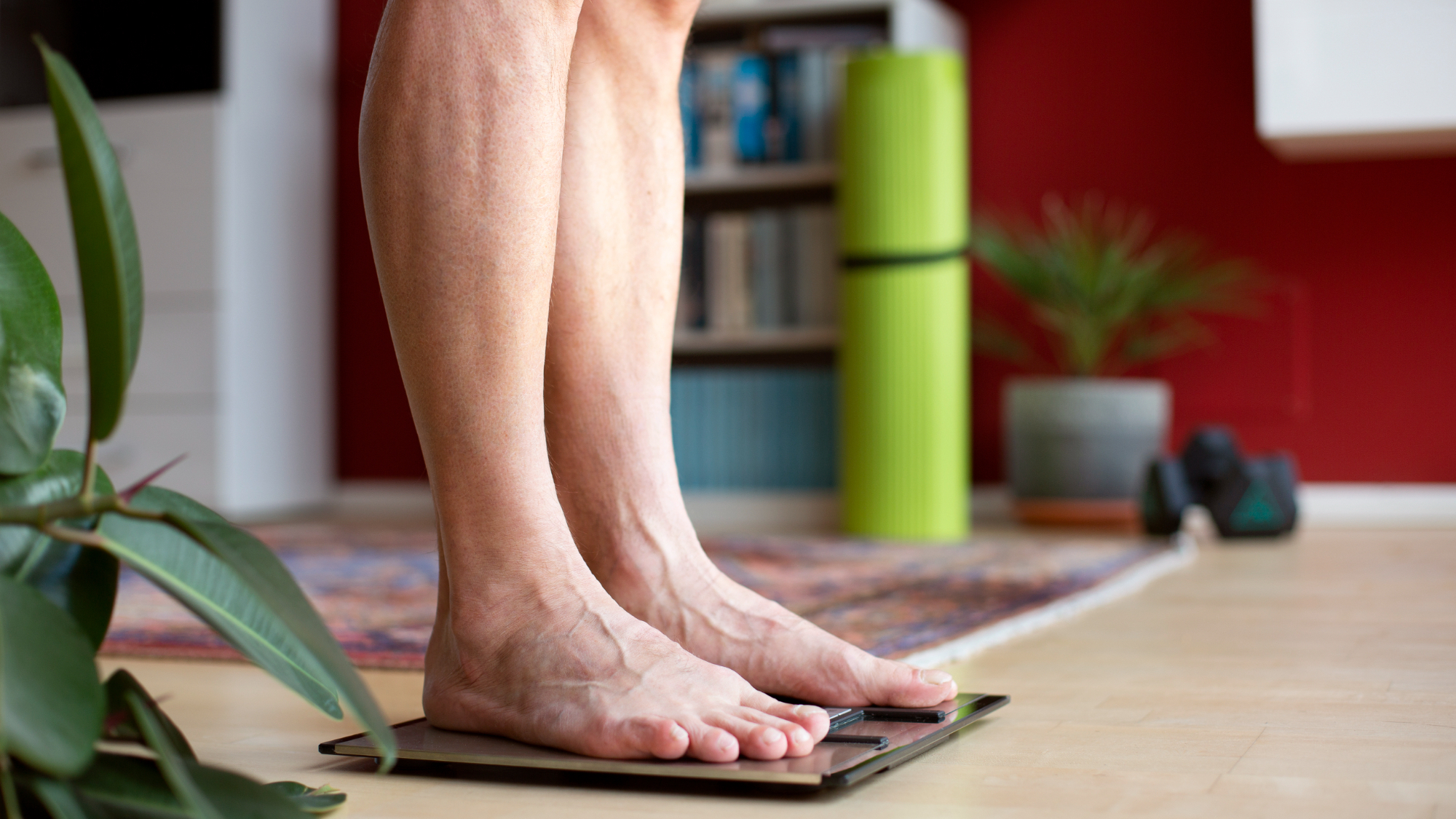Can you lose weight by fasting?
Is it better to lose weight by fasting, or is basic calorie control more effective?

Fasting is an effective way to change your eating habits, often without the pressure of calorie counting, but is it helpful for everyone, and can you lose weight by fasting?
You might already be using the best exercise machines to lose weight if you're trying to drop some pounds, but common wisdom says that we also need to be in a calorie deficit to see results.
But sustainable weight loss can often seem impossible to achieve, particularly when you've got a packed schedule leaving little time for home cooking. And when you're tired, it's easy to grab a high-calorie snack.
One idea put forward is that fasting — intentionally not eating for short periods — can help without the need to track calories constantly. But can you lose weight by fasting, and is it safe? We asked Roxana Ehsani to help us find the answer.
Before we get into the details, though: you don't have to lose weight. There's a lot of pressure in this world to look a certain way or lead a specific lifestyle, but it's more important to use self care ideas and exercise for happiness than drop pounds, unless it's what you want to do.
But if you do want to lose weight sustainably for your health or other personal reasons, let's look at whether fasting can help you lose weight or if it's another diet that's not worth your time.

Roxana Ehsani is a certified specialist in sports dietetics and a former spokesperson for the Academy of Nutrition and Dietetics. She holds a Bachelor of Science in Human Nutrition, Foods, and Exercise from Virginia Tech and a Master of Science in Clinical Nutrition and Dietetics from the University of Pittsburgh.
Can fasting lead to weight loss?
According to Roxana Ehsani, fasting could lead to weight loss or weight gain, depending on the amount of food you consume in your eating window.
Get the Fit&Well Newsletter
Start your week with achievable workout ideas, health tips and wellbeing advice in your inbox.
"Fasting may lead to weight loss, as you are restricting the window in which you are eating foods. It may help people who tend to graze on food all day long. Or people who enjoy eating late at night and tend to eat many snacks after dinner, for example," she said.
"It could also lead to weight gain, as people may overeat at meal times because they are restricted when they can eat. Some people may end up eating less meals per day, but then overeat at these two meals to not feel hungry when they are in their fasting window."
According to a 2015 report in Nutrition Reviews, intermittent fasting can effectively reduce body weight in people of every size. However, a 2021 clinical trial in Science Translational Medicine reported that fasting without calorie restriction was not effective for fat loss or body weight reduction in lean adults.
Most studies into fasting focus on alternate-day fasting or whole-day fasting trials, but there is also evidence to support the success of time-restricted eating. Intermittent fasting has been shown to have benefits for those with obesity, as found in another review in the 2021 Annual Review of Nutrition.
Is fasting good for you?

While fasting can be helpful for some people, it can also be risky, particularly if you have an underlying health condition or eating disorder. "It can be dangerous, especially if going days without eating or severely restricting severely," said Ehsani.
"Like any other fad diet, it can be difficult to stick to, but may help people who don't want to have to follow a diet, for example, or want to track calories." Instead, the tried and tested methods are often best.
One of the most effective ways to lose weight is by staying in a calorie deficit, where you consume less energy than your body uses, according to a report in the Journal of Obesity and Metabolic Syndrome.
Intermittent fasting may seem a good way to maintain a calorie deficit, but if you're not tracking your calories during your eating window, it's easy to overeat and end up in an energy surplus.
Different types of fasting might also be counterproductive for women, as an Obesity Society study found alternate-day fasting can cause an impaired glucose response in women with a healthy body weight.
Is fasting safe?
While there are some reported benefits to fasting, like any intervention, there can be some downsides. The first, of course, is that you're likely to feel quite hungry, especially at the start as your body gets used to less food.
That's why it's vital to eat healthily on a budget outside of your fasting hours to ensure your body gets all the nutrients it needs. Plus, cooking a meal from scratch can be a great way to be mindful of what you eat and have fun in the process.
But, according to registered dietitian Kimberly Gomer, fasting responses also differ from person to person, so it's important to do what's right for your body. “We all have individual responses, so [fasting] affects us differently," she says.
And because there's such a variety of fasting techniques, the information can be quite overwhelming, with plans ranging from brief fasts up to 23-hour breaks from eating. And this is where it can get tricky to fast safely.
Restricting your food suddenly or severely with a 23-hour fast can be a challenge for anyone already struggling to find a healthy relationship with eating. "If someone has a diagnosed eating disorder such as anorexia, bulimia, or binge eating, it is a terrible thing for them to do intermittent fasting," explains Gomer.
"I feel like anybody who has ever been on a diet can have some disordered eating because that's what restriction is. There's always the possibility that when somebody starts fasting, it could potentially lead to a disordered relationship with food," she adds.
This is backed up by a study published in the journal Appetite, which found that people who had fasted in the past were more likely to show disordered eating behaviors like bingeing.
Of course, these conditions may not have a single cause or trigger, but it's something to keep in mind, especially if you're primarily fasting to lose weight.
If you think that you or someone you know may have an eating disorder, you're not alone. Your doctor may be able to refer you to a therapist, but we also understand that talking to a medical professional can be daunting.
The National Eating Disorders Association has a guide to free and low-cost support options in the US. In the UK, you can find more information from the eating disorders charity Beat and speak to one of their volunteers by email, web chat, or phone.
Can other types of fasting help you lose weight?
Although intermittent fasting is one of the best-known techniques, it's not the only type of fasting. But how to the other methods stack up, and can they help you lose weight?
Time-restricted eating
Time-restricted fasting is the most realistic style with typical 9-5 work days, as we spend a large percentage of the fasting time asleep. Usually structured in 16/8 or 14/10 windows, you would fast for 16 or 14 hours and eat during the smaller window.
"It might not be feasible for some people to do this diet; let's say you can't even eat often or much during your job, then it greatly restricts you from even eating."
"It may help people who tend to be night-time eaters to stop eating after 8 pm or 6 pm, which could help over time with achieving weight loss," said Ehsani.
5:2 fasting
The 5:2 method of intermittent fasting allows for five days of regular eating, with two days of fasting each week. Fasting days may allow for small 200-300 calorie meals or snacks, but some people completely cut out food over the 24-hour fasting periods.
"Some people may find this approach works for them, as they don't need to restrict all days of the week to just two days, but it also may lead to overeating on days you are allowing yourself to eat," Ehsani said.
"It might be really difficult still to just eat 500 calories over the course of one day, which really means just one meal on those days."
Alternate-day fasting
Alternate-day fasting is one of the most intense styles where you fast every second day. You can eat normally when not fasting, then cut out food or reduce your intake down to 25 percent.
"It may work well for some people but also may be too restrictive to do for others. It may cause weight loss, but could also be dangerous to people with certain health conditions," said Ehsani.
Tips for losing weight by fasting
Fasting can be a helpful method for weight loss, particularly for people who need structure to adhere to an eating plan. However, there are some considerations you should make before you dive in headfirst.
Ehsani recommends consulting with a dietician when fasting to avoid getting it wrong. "Every person is unique, has different needs, different health conditions, medical history, family health history, so it's important for an expert first to conduct a comprehensive assessment."
"This can provide personalized recommendations that fit your health needs, preferences, and budget. Just because your favorite celebrity is on a special diet or fast doesn't mean it's the right choice or healthy choice for you, too," she said.
It's also best to gradually accustom yourself to this way of eating. "Work on one goal per week, such as instead of deciding on a fasting window, work on eating at least two fruits and two veggies per day," she suggests.
Although often thought of as a weight loss tool, some studies suggest that fasting could boost your health, too. But does fasting really work? The answer isn't quite clear, so it may be best to learn how to eat healthily instead.
But if you are struggling to lose weight, there might be a simple workaround you can try, like adjusting your sleep schedule, changing what you eat, and reassessing how you work out.

Lou Mudge is a Health Writer at Future Plc, working across Fit&Well and Coach. She previously worked for Live Science, and regularly writes for Space.com and Pet's Radar. Based in Bath, UK, she has a passion for food, nutrition and health and is eager to demystify diet culture in order to make health and fitness accessible to everybody.
Multiple diagnoses in her early twenties sparked an interest in the gut-brain axis and the impact that diet and exercise can have on both physical and mental health. She was put on the FODMAP elimination diet during this time and learned to adapt recipes to fit these parameters, while retaining core flavors and textures, and now enjoys cooking for gut health.